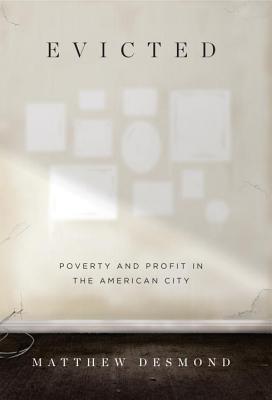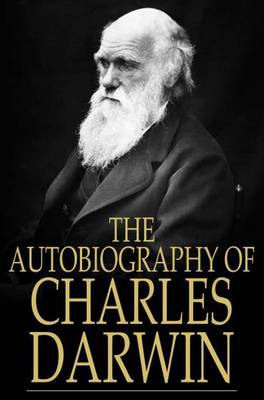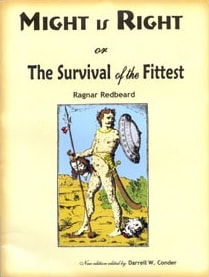|
Evicted: Poverty and Profit in the American City
by Matthew Desmond Published in March 2016 418 Pages Thibault’s Score: 4/5 Few books have pissed me off as much as this one has. This book has fueled a deep resentment in my heart to irresponsible parents - although I don’t think that was the goal of the author, his goal is to write about evictions. He does a great job at exposing the diseased underbelly of America. Young teenagers choosing to get pregnant with drug dealers. Husbands who abandon their children to complete strangers. Parents who are strung out on crack and heroin. Children who have to use small pieces of carpet to keep warm at night. The book opens with a scene describing children playing with snowballs in the street, throwing the snowballs at cars. A man gets out of a car, and chases the children to their apartment. The kids hide inside, and lock the door shut. The angry man chases the kids and destroys the door, then leaves. The next day, the family gets evicted by the landlord. The mother loses all her physical possessions and is left on the curb. After loosing all of her stuff, she ended up with her family in a homeless shelter for 9 months. All of the characters in this book live miserable lives. They are racially diverse, have very different family structures, but share some common traits. Many are poor, uneducated, addicted, and have made numerous bad choices in their lives. Bad choices followed by excuses for bad choices is the reoccurring theme of the book. All of the characters were traumatized as children then go on to traumatize their children. The author argues that changing eviction law will fix the lives of the people in question. I don’t think that anything can be done to change the lives of dysfunctional people who make terrible choices - historically, the only solution is to get rid of such people either through disasters or changes in sexual selection. This can be done by providing access to free birth control, paying young poor women for every year that they don’t have children, and developing a male version of “the pill.” There also needs to be major cultural changes: women need to be told that they are heroic for not having kids staying single and partying and evil if they have kids that they can’t take care of. Women need to be taught by media to avoid alpha male drug dealers who don’t care about raising a family, and need to be conditioned to go for mentally stable beta males who can secure gainful employment. Last, the state should punish people for making certain irresponsible choices that put others at risk. First, parents who have children taken by CPS should be forcefully sterilized to prevent them from creating more traumatized people. Men who impregnate more than 3 or 4 women and create single moms should also be forcefully sterilized. Welfare should be increased for men who stay with rather than leave mothers, and benefits should be reduced for young men who leave their children to fend for themselves with a single mother. Most importantly, the state should re-instate corporal punishment for adults and the state should cane any adult who hits a kid (Singapore style). This book really makes me more anti-natalist - the belief that the vast majority of people should choose not to have kids because for many people, it would have been better for them never to have been born. The book is very engaging and well-written. The language is clear, and the quotes were all recorded. I recommend the book to anyone who is studying poverty in America.
0 Comments
The Autobiography of Charles Darwin
By Charles Darwin (edited and published Francis Darwin) Published in 1887 Thibault’s Score: 4/5 It has been estimated by psychologists that Charles Darwin had an IQ of 165. This book sure reads like it was written by someone with an IQ of 165. When Darwin died in 1882, his children searched his possessions and found a partially finished autobiography. They completed the autobiography, and published it five years after Darwin’s death. This book is very informative in many regards. It is a great read for people who want to learn more about biology, because Darwin explains in his own words how he came to the conclusions he reached. It also has value as a historical document about life in the 19th century. The quality of the writing is amazing - despite the long sentence structures used in the 19th century, the language reads very well, and the style is clear and easy to read. Charles Darwin was born to a wealthy family in England in 1809, and grew quickly fond of science. His childhood is one of consumate curiosity, much to the chagrin of Darwin’s family, who worried that Darwin wouldn’t achieve very much in his life. Darwin was a mediocre student, and although his parents spent a lot of time, money, and effort to educate him, he didn’t perform very well in school. After several academic failures, Darwin decided to study to become a priest, but once again failed in his priestly studies. This was despite the fact that Darwin’s parents had hired several personal tutors to help him. While studying at Cambridge, Darwin fell in love with natural science. After graduating, he decided that the academic lifestyle wasn’t for him, and found a job as a naturalist on the HMS Beagle in search of adventure. One thing which disappointed me a lot about this book is that Darwin doesn’t write very much about his travels on the HMS Beagle, and instead directs the reader to his other books. Instead, he spends the last half of his book talking about his life in England after he returned from the voyage on the Beagle. One very interesting aspect of the book was that the reader can see Darwin’s personal moral evolution. As a child, Darwin experimented with cruelty. He committed a few vile acts, such as tormenting a puppy. Over time, however, he became an increasingly caring and empathetic individual. By the time he leaves on his journey on the Beagle, he was deeply concerned with issues such as slavery, and had a unique moral view of mankind. In the last few chapters, Darwin talks about his life philosophy. We all have everything to learn from Darwin’s inquisitive philosophy of rational analysis. While describing geology, he sums up his life philosophy: “Upon first examining a new district, nothing can appear more hopeless than the chaos of rocks. But by recording the stratification and the nature of the rocks and fossils at many points, always predicting and reasoning what will be found elsewhere, light soon begins to dawn on the district. The structure of the whole becomes more or less intelligible.” Using reason, Darwin systemically organizes chaotic systems into workable mental models. This skill allowed him to accomplish as much as he did. Darwin is a very curious individual and a good writer. This was a fantastic read that I highly recommend. Might Is Right
by Ragnar Redbeard (Arthur Desmond?) Published in 1890 120 Pages Thibault’s Score: 3/5 This book is certainly entertaining and brought me some insights, but it reads like the manifesto of a school shooter. Might is Right was anonymously published in 1890 by a “Ragnar Redbeard.” Arthur Desmond, a New Zealander egoist anarchist and an advocate of Social Darwinism most likely wrote the book. Desmond was an interesting guy who knew multiple Australian prime ministers and travelled across the world, and is well worth reading about. Redbeard argues that there is no such thing as morality and argues in favor of using any means necessary to achieve psychological hedonism. The book’s writing style is very odd, and it is clear that the author was disturbed. Sentences hardly relate to each other, and often gratuitously repeat each other. The book contains no arguments, just statements which lack evidence. All whack jobs, terrorists, gunmen, conspiracy theorists, race realists, Deepak Chopra fee list, and other undesirable crackpots must read this book. |
Thibault SerletMost of my articles are book reviews, but I also write about many other topics. Archives
December 2023
Categories |



 RSS Feed
RSS Feed